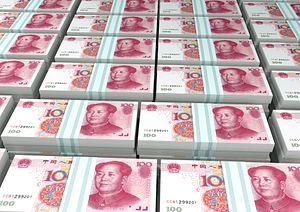It has been over a decade since the European Union (EU) jettisoned its attempts to defy the United States and lift the arms embargo imposed against the Chinese after the Tiananmen Square massacre in 1989. The painful diplomatic machinations around this on the European side ended a period in which, on the whole, the Chinese had maintained strong hopes towards Brussels. Such hopes are most visibly testified to now in the White Paper produced in 2003 by the State Council in Beijing serenading the importance of the Europeans as diplomatic, intellectual, and, of course, economic partners.
After 2004, when attempts to lift the embargo ended, the language about the EU emanating from Beijing became frostier. During the worst period, high level bilateral summits were cancelled over meetings between European leaders and the Dalai Lama. Chinese officials and scholars in Beijing would go puce with rage over what they declared was the unjustified sanctimonious tone they had to endure from EU delegations. This resulted in the second white paper in 2014, a far harsher, more hectoring document. Both sides had long since been disabused of their softer hopes towards each other.
Realism in diplomacy is no bad thing; it is just a question of degree. Partners mired in distrust and hard-nosed bitterness toward each other often lose opportunities for easier collaboration when such chances come along through the restraint imposed by negative prejudices — and cynicism toward others, after all, is as much a prejudice as being starry-eyed. In 2016, the EU and China have their the first chance in a decade to use a symbolic change to express a new way to think about each other and expand the parameters of what they are willing to do. This time, however, it is the far softer issue of Brussels conferring market status on the economy of China rather than anything involving military hardware.
Under World Trade Organization rules, there shouldn’t be any argument about this. Brussels seems to be obliged to confer the status by the end of this year. And once it has conferred market economy status on Beijing, Chinese access to the EU market becomes even freer and less tariff-bound. But the EU lawyers can make a case that state subsidies still exist to a huge degree in China, meaning its state and non-state companies are at an unfair advantage, and on those grounds at least, clearly not observant of market principles – so the status cannot be given.
Lawyers will always argue. In the end, what unites this moment of EU decision-making about China to the arms embargo case of over a decade before is the role of politics. This is a political, not an economic decision, that the EU needs to make, and keeping that in mind makes it a little easier. The question at the moment is whether, with all the other strife and distractions that Europe is dealing with, its leaders will see conferring market economic status on China as an aid, or an impediment, to solving other issues. Will it, in principle, unlock badly needed new sources of growth for the Eurozone? Will it buy greater political support from Beijing for some of the EU’s other issues, from refugees to Ukraine and countering looming Russian influence, to sourcing new good quality investment?
Seen narrowly, this decision over conferring market status on China will probably threaten or hurt some vested interests in Europe. But in a bigger context, it does offer the opportunity to at least put the relationship with China on a stronger strategic footing. First, it will show that at least in one area – the economic – the EU can defy the demands of Washington and act unilaterally toward Beijing. Second, it will prove the prowess of EU negotiators. Getting at least some concessions and benefits from this largely symbolic measure might show they are not as toothless as many believe. Finally, there is the issue of time. Right now, China prizes getting this status from its largest trading partner. Today, the EU economy is still a big deal to China. But every day, this diminishes; in another five years, or a decade, its currency will decline. The EU may as well bargain hard, and reap some rewards, while they have the upper hand.
Plus, granting China market status might finally put to rest the harsh memory of the Chinese disappointment at the arms embargo fiasco of 2004 and the negative impression that it gave them of the EU. It will prove that the EU is not just a partner long on rhetoric and short on action, but one with at least some modicum of executive power. Of course, the economists will leap up and down with speculative proofs of the potential harm this move might lead to. But their discipline cannot say much about the political benefits, which is where the real attention needs to be focused. In the long term, these benefits will lead to a stronger relationship with China and enhanced influence. The risk is far greater from failing to make this move than from making it. If the EU does not grant market economy status to China in 2016, then they deserve all the calumny that Beijing is likely to heap on their heads.
































